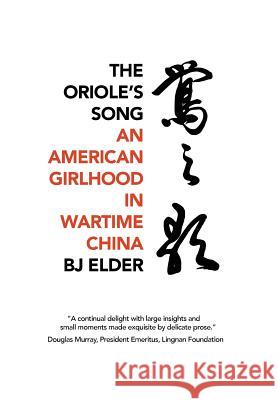The Oriole's Song: An American Girlhood in Wartime China » książka
The Oriole's Song: An American Girlhood in Wartime China
ISBN-13: 9781788690607 / Angielski / Twarda / 2003 / 226 str.
The Oriole's Song: An American Girlhood in Wartime China
ISBN-13: 9781788690607 / Angielski / Twarda / 2003 / 226 str.
(netto: 130,41 VAT: 5%)
Najniższa cena z 30 dni: 135,75 zł
ok. 13-18 dni roboczych.
Darmowa dostawa!
On May 17, 1951, Dwight Rugh -- a Yale-in-China representative for twenty years and one of the last Americans remaining in China after the Communist Revolution -- was taken from his home in Changsha to a mass rally where he was denounced as an imperialist spy. Twenty-three years later, his daughter was one of the first Americans to enter China after it reopened to the West. Despite the fact that the Cultural Revolution was in full sway, she visited the site of her father's "trial" and met with some of his friends and colleagues who had been compelled to participate in the proceedings.In this evocative and beautifully written memoir, BJ Elder tells the remarkable story of her family and what it was like for her, an only child, to grow up in China during the Second World War. Born in Hunan, hers was a childhood spent in two languages and "between two names." In a remote river town, she shares the terrors and enthusiasms of her Chinese friends, hides from Japanese bombs, struggles over Chinese calligraphy, and spends enchanted summers in a hidden valley. Yet she thinks of America as "home." When the family goes home to the United States, however, she finds herself drawn back to the country of her birth.This is an account of how one person has tried to make sense of the past, of being formed by two cultures yet never completely belonging to either, of seeing the world from one point of view, but feeling the presence of another, like print coming through from the other side of the page. In the end, two decades after the Cultural Revolution, she takes us "home" again to a much more open China, where she comes to terms with the past and with her place between the two worlds she has known.











